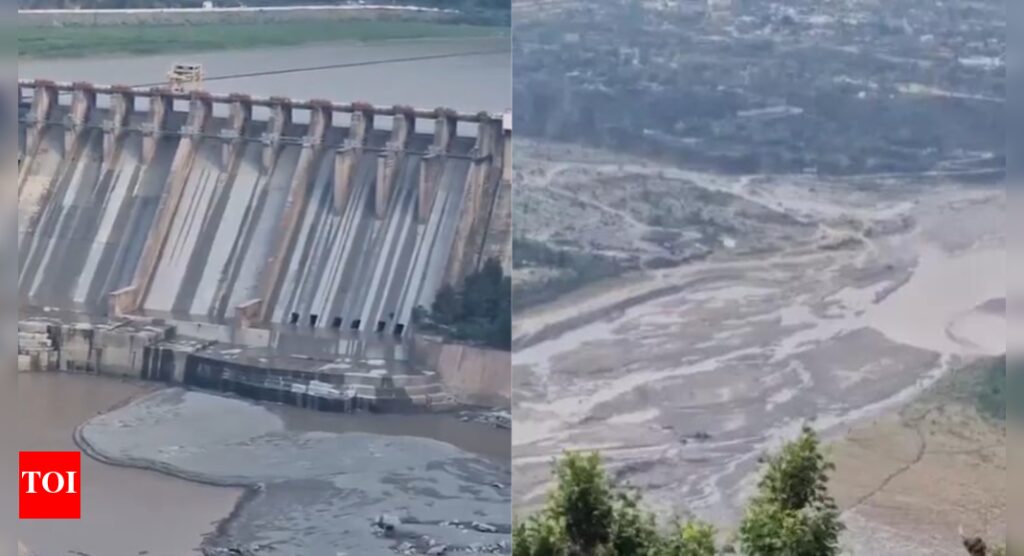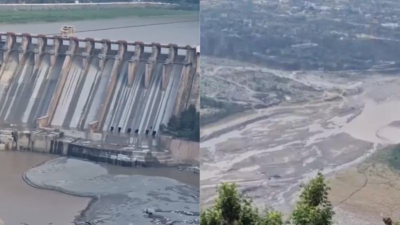Water level in Chenab drops near Akhnoor after Salal Dam gates shut amid India-Pakistan tensions | Jammu News

NEW DELHI: Authorities closed all gates of Salal Dam on Chenab River, causing water levels to drop significantly in Reasi district on Monday. Meanwhile, water continued to flow from the Baglihar Hydroelectric Power Project Dam on Chenab River in Ramban.
BJP IT Cell chief Amit Malviya praised Prime Minister Modi’s decision on X, stating: “It takes political will to make tough decisions in India’s interest, and Prime Minister Modi has demonstrated that through his actions. This is the muscular Modi Doctrine, firm and unwavering in its fight against terrorism. Water and the blood of our citizens cannot flow together. Let that be clear.”
Local residents expressed support for the government’s action. Dinesh commented on the stoppage of water flow to Pakistan, referencing the Pahalgam tourist incident. Another resident praised it as a significant achievement, supporting the government’s response to Pakistan.
The Chenab’s water level increased on May 2 due to heavy rainfall in Jammu and Kashmir’s Akhnoor sector.
On April 28, Uttarakhand Chief Minister Pushkar Singh Dhami commended the decision to suspend the Indus Waters Treaty, describing it as a bold step under Prime Minister Modi’s leadership. In his ANI interview, Dhami stated that contemporary India understands how to manage both friendly and hostile relations.
The Indus Waters Treaty, signed in 1960 after nine years of negotiations between India and Pakistan, involved the World Bank as a signatory. World Bank President Eugene Black initiated the discussions.
This treaty has persisted through various tensions and conflicts, providing a framework for irrigation and hydropower development. Former US President Dwight Eisenhower noted it as “one bright spot … in a very depressing world picture that we see so often.”
The agreement assigns the Western Rivers (Indus, Jhelum, Chenab) to Pakistan and Eastern Rivers (Ravi, Beas, Sutlej) to India, whilst allowing certain usage rights to both countries. India receives 20% of the Indus River System’s water, with Pakistan receiving 80%.
The Pahalgam incident ranks among the most severe attacks in the Valley since the 2019 Pulwama attack that claimed 40 CRPF jawans. In response to the Pahalgam terror attack, India implemented strict measures against Pakistan, including suspending the Indus Water Treaty.






